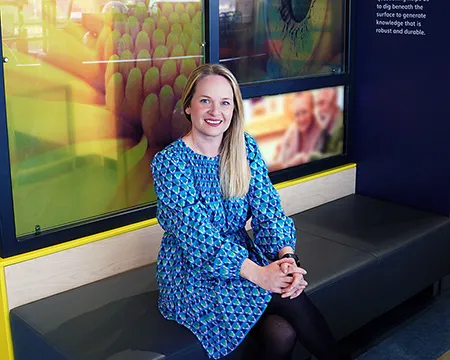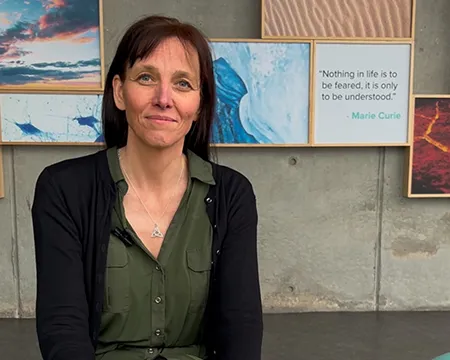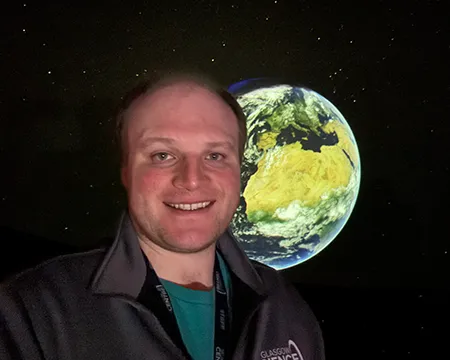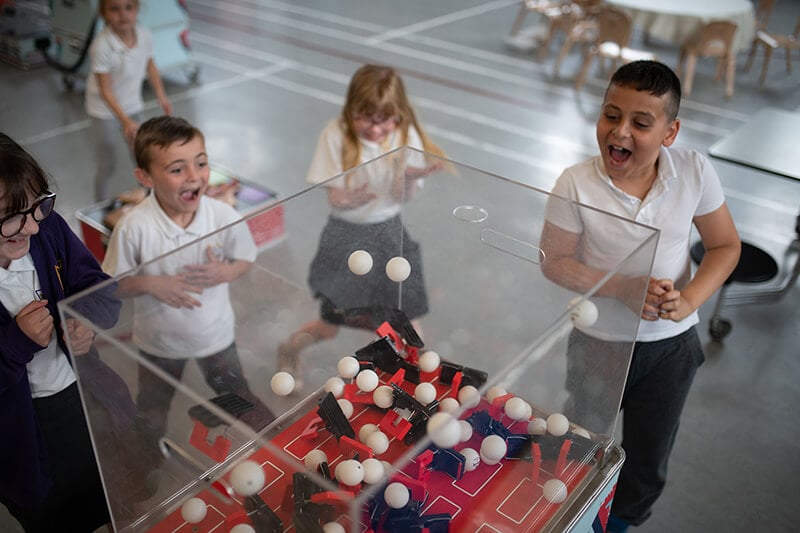Earth Allies: The Next Generation of Climate Activists

In a rapidly changing world, the impact of climate change is becoming more evident with each passing day. As society works hard to find sustainable solutions, it is crucial to ensure that every voice is heard, and every mind is empowered to contribute to the conversation. For young people with autism, providing them with opportunities to learn about climate change in small groups with STEM (Science, Technology, Engineering and Maths) educators is extremely important. That is why the community team at Glasgow Science Centre teamed up with ENABLE Scotland and 8 young people from Loudoun Academy by inviting them onto our 12-week Earth Allies course, funded by ScottishPower Foundation and aimed to provide 16–24-year-olds with the tools to become advocates for climate action.
The Power of Climate Activism
The course, in its 3rd year, is designed to build knowledge and understanding of the ever-changing climate issues, develop digital and campaigning skills, plus empower, and build confidence. By involving young people with autism from Loudoun Academy, we merged STEM learning and environmental awareness that was accessible and inclusive.
Learning about climate activism can bring numerous benefits to teenagers. Firstly, it provides them with a sense of purpose and a platform to make a positive impact on the world. Climate activism allows neurodivergent young people to channel their passion and interests towards a cause that aligns with their values. For those reasons, the climate science we introduce them to is continually reviewed and updated whilst remaining relevant. Eco-anxiety is a cause for concern amongst those of us keen to engage the next generation in climate activism. It is therefore imperative for us to deliver a healthy balance between the changes that are occurring and the positive actions that are helping adapt our world. During one session the young people heard from a former Earth Allies student who returned to share his experiences with the course and his own diagnosis of autism, making an incredibly positive impression on our current students.
Fostering Inclusivity and Confidence
As the Earth Allies course progressed, we witnessed the participants grow in confidence as they became aware of their ability to create meaningful change. This was brought to life through the various challenges we set throughout the course. The first challenge was to design a campaign poster, giving them the opportunity to share an example of a climate science topic they were particularly passionate about. I am never surprised to see the request to ban single use plastic make it onto the posters and loved the line “solution to pollution” in bold letters in one campaign poster.
Climate activism also thrives on collaboration and teamwork, offering the young people opportunities to develop their social skills and build connections with peers who share their concerns. The film making challenge was a perfect example of successful teamwork. After taking the opportunity to do some litter picking on a gloriously sunny day early in the summer term the young people identified an issue they wanted to tackle through their video campaign. They worked together to gather footage and still shots within the school grounds to form a narrative around properly disposing of rubbish at lunch time. They were invited into the science centre for a masterclass with our award-winning videographer which resulted in a wonderful collaborative session where the young people made all the creative decisions during the editing process and produced a short campaign film which they can be immensely proud of.
The focus on research, data analysis, and problem-solving inherent in climate activism can also cater to the strengths of many autistic individuals, allowing them to utilise their unique skills. On a weekly basis, our participants would report back to us about the increasing number of discussions they were having with their friends and families around climate-based issues. These discussions are often where climate activism begins and reflect the topics covered in the course. Every week we would introduce the young people to new climate science, such as plastic pollution, climate and weather, fast fashion, misinformation and fake news, energy, food, sustainability, and climate justice.
By expanding their knowledge of climate change and providing them with the tools to contribute effectively, we unlock their potential as agents of change. It is important to recognise the transformative power of combining education, climate change awareness, and STEM learning, as we work together towards a sustainable future that leaves no one behind.
Further Information
This blog post by Sheen McDonald is adapted from an article by Glasgow Science Centre that first appeared in Glasgow Times in July 2023. More information on Earth Allies at Glasgow Science Centre can be found here






